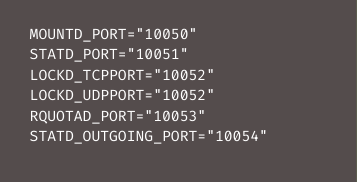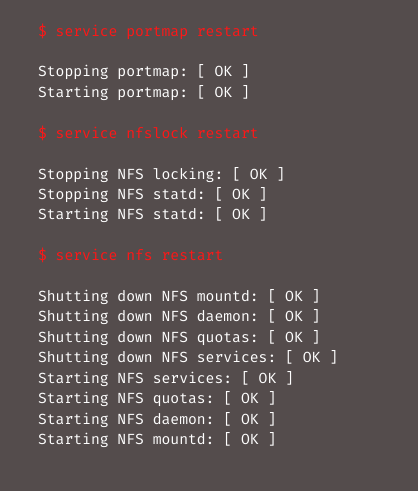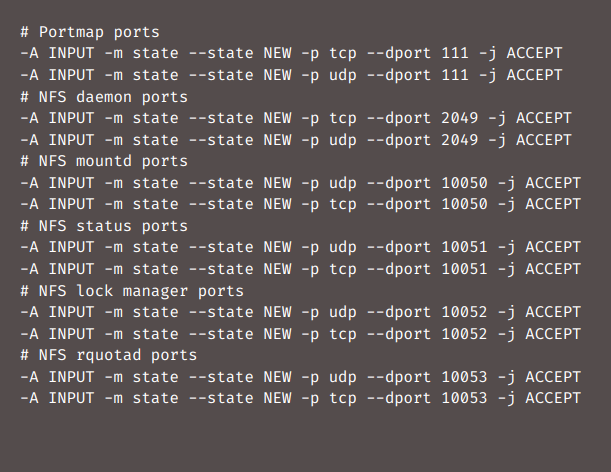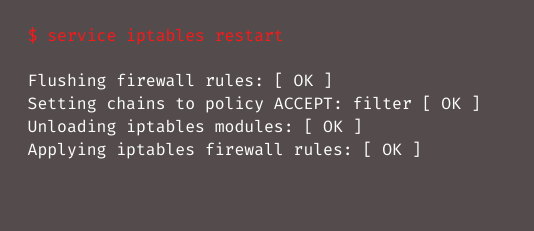Let’s see the way to allow NFS with iptables in this post. With Server Management Services, we provide solutions to your queries at Bobcares.
How to allow NFS with iptables?
A machine can exchange directories and files over a network using NFS. Users and programs can access files on distant systems almost as if they were local files by using NFS. NFS must be among the most difficult firewalling services to get up and running.
The various NFS services will by default ask the portmapper (portmap) for random port assignments, so most administrators will have to open up a variety of ports in there have been assigned firewall rule base to get NFS up and running. The steps to allow NFS with iptables are as follows:
1. In /etc/sysconfig/nfs, hard strap the ports that the NFS daemons use.
2. The iptables chains should now include the ports from step 1.
3. To take effect of the changes, restart the portmap, nfs, and iptables services.
Let’s look into the details of each step now.
Allowing NFS with iptables
1. We can assign the preferred ports to the MOUNTD_PORT, STATD_PORT, LOCKD_TCPPORT, LOCKD_UDPPORT, RQUOTAD_PORT and STATD_OUTGOING_PORT variables in /etc/sysconfig/nfs:

2. In order for the portmap and nfs services to take up the changes after assigning the ports, we must restart them:

3. Now various services are registered on the ports that were assigned in /etc/sysconfig/nfs:
4. Modify the proper iptables chains to permit incoming connections to the NFS service ports:

5. Lastly, restart the iptables:

[Searching for a solution to a different question? We’re here to help.]
Conclusion
NFS is a complex firewalling service. Allowing NFS to work with iptables is a three-step process, which we discussed in this article.
PREVENT YOUR SERVER FROM CRASHING!
Never again lose customers to poor server speed! Let us help you.
Our server experts will monitor & maintain your server 24/7 so that it remains lightning fast and secure.







0 Comments